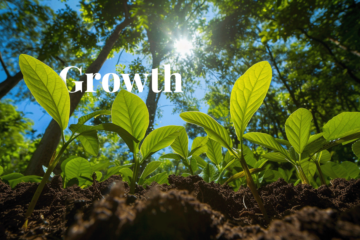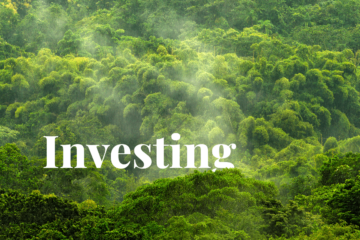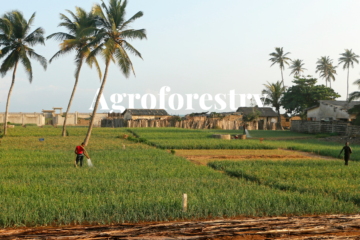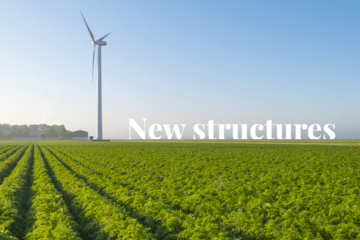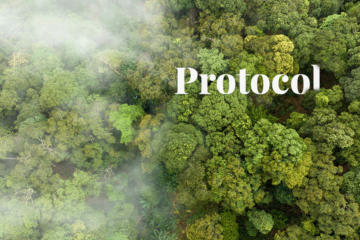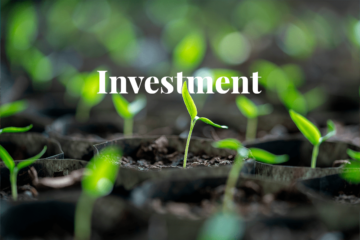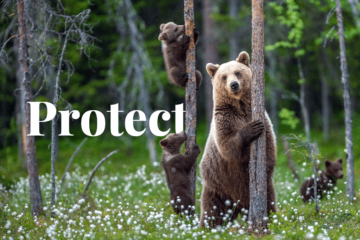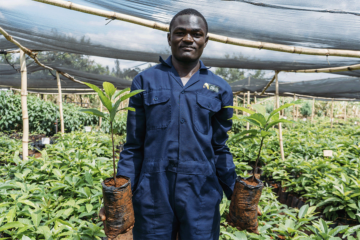A recent paper authored by the Taskforce on Nature Markets, titled Nature in an Era of Crises, valued nature markets at $7.3 trillion worth of goods and services. This figure is equivalent to 8.6% of the Global GDP. The recent paper is significant in that it aims at broadening the interpretation of how nature can be protected.

The Taskforce on Nature Markets was set up in March 2022 as a response to the development of nature-based markets. The Taskforce on Nature Markets was set up by Nature Finance, an initiative putting positive and equitable outcomes at the heart of global finance. Their mission is to ensure fairness and avoid greenwashing in a market that keeps on expanding and surpasses sovereign laws.
Nature markets refer to the trading and monetization of nature. This means that nature is not only seen as a depleting resource but a regenerative one – so the economical value of nature is increasing because it can produce economical value again and again (not only when it comes to agriculture).
The nature markets include agricultural commodities, such as fruits and vegetables or animal products from meat to honey or seafood. These are valued at $4 trillion annually, the equivalent of Japan’s GDP, the third biggest one globally. Nature markets also mean emerging markets like voluntary carbon credits, conservation projects, and nature-based solutions for carbon sequestration.
$7 trillion dollars is a huge number. So what does it mean? The Global market is currently valued at $95 trillion – that is 95 thousand billion dollars. Even that number may be difficult to grasp. To use a useful comparison, in 2020, the biggest companies in tech (Apple, Amazon, Microsoft, Alphabet, and Facebook) were collectively worth more than $7 trillion. While such valuations change over time, you can form an idea of how significant the nature-based market is.
More importantly, the Taskforce on Nature Markets stresses that 100% of the global economy totaling $95 trillion depends on nature. And with the increasingly numerous crises that it faces, the paradigm should shift.
Instead of regarding nature as a resource to be depleted, treating nature as a “regenerative asset” could change the way in which markets treat nature. It could mean a critical shift in how we address the crises emerging at the intersection between nature and financial markets. It would signal that there is value in upkeeping nature in a prosperous state for the benefit of us all (including the market).
While nature-based markets include both long-established markets, like agriculture, they also encompass emerging markets like the carbon credits markets. What the paper calls for is robust governance of these newly emerging markets to ensure fairness, and protect against greenwashing. A firm policy could also shape the value of the market and the distribution of economic benefits equitably among all parties concerned.
The way in which we treat nature markets, “are a bridge to a total shift in our economic system”, according to the Taskforce. At DGB we focus exclusively on nature-based solutions that positively impact the environment and bring value to the market and society.
- SEO Powered Content & PR Distribution. Get Amplified Today.
- Platoblockchain. Web3 Metaverse Intelligence. Knowledge Amplified. Access Here.
- Source: https://www.green.earth/blog/nature-based-markets-valued-at-7-trillion
- 2020
- 2022
- 420
- a
- About
- According
- address
- against
- Agricultural
- agriculture
- aims
- All
- Alphabet
- Amazon
- among
- and
- animal
- Annually
- Apple
- because
- benefit
- benefits
- between
- Biggest
- Billion
- BRIDGE
- bring
- Calls
- carbon
- carbon credits
- Carbon Sequestration
- change
- CNN
- code
- collectively
- Commodities
- Companies
- comparison
- concerned
- CONSERVATION
- could
- Credits
- critical
- Currently
- depends
- Development
- DGB
- difficult
- distribution
- dollars
- Economic
- economy
- emerging
- emerging markets
- ensure
- Environment
- Equivalent
- Era
- Even
- exclusively
- expanding
- faces
- fairness
- Figure
- finance
- financial
- Find
- Firm
- Focus
- forest
- form
- from
- Fruits
- GDP
- get
- Global
- Global economy
- global market
- Globally
- goods
- governance
- grasp
- Green
- Heart
- Honey
- How
- HTML
- HTTPS
- HubSpot
- huge
- idea
- Impact
- in
- include
- Including
- increasing
- increasingly
- Initiative
- interpretation
- intersection
- investment
- IT
- Japan’s
- Land
- Laws
- March
- Market
- Markets
- max-width
- means
- Meat
- Microsoft
- Mission
- monetization
- more
- Nature
- number
- numerous
- ONE
- opportunities
- Paper
- paradigm
- parties
- plato
- Plato Data Intelligence
- PlatoData
- policy
- positive
- produce
- Products
- projects
- protect
- protected
- Putting
- recent
- regarding
- resource
- response
- robust
- seafood
- sequestration
- Services
- set
- Shape
- shift
- should
- Signal
- significant
- So
- Society
- Solutions
- sovereign
- State
- such
- team
- tech
- The
- their
- Third
- time
- titled
- to
- Total
- touch
- Trading
- treat
- treating
- Trillion
- us
- use
- Valuations
- value
- valued
- Vegetables
- What
- which
- while
- worth
- would
- Your
- zephyrnet




